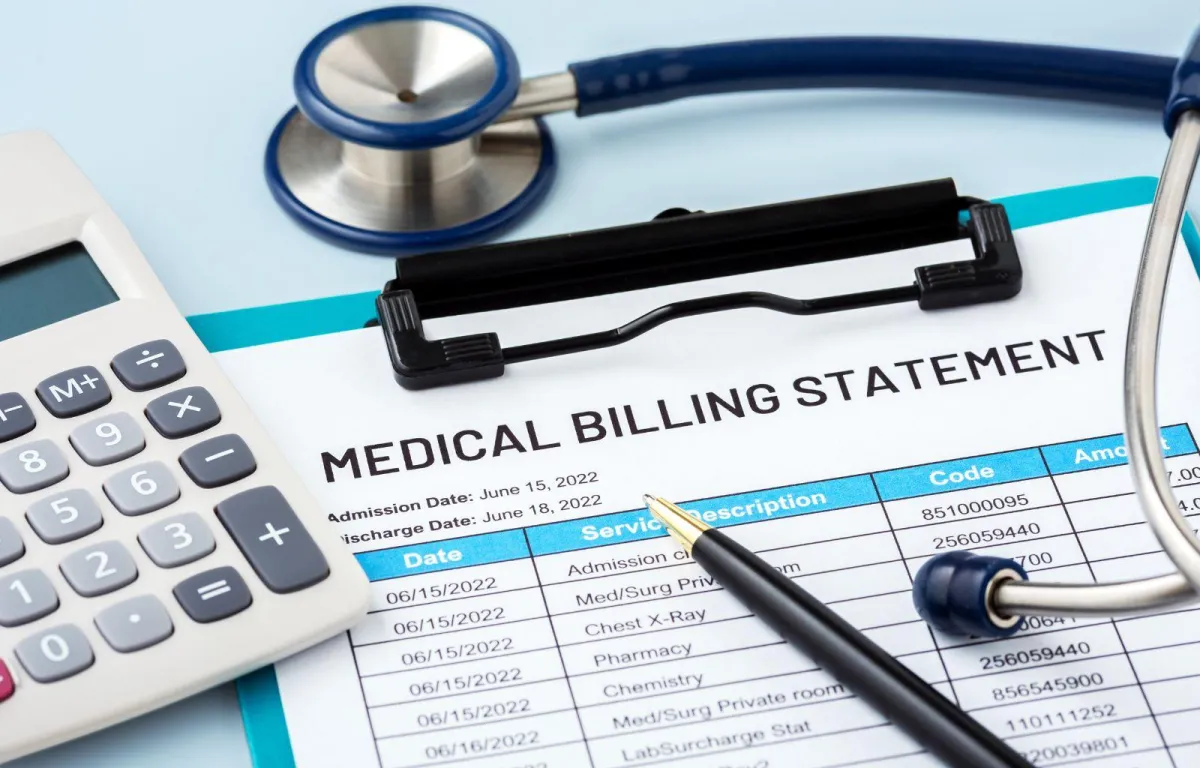What Is a Payday Loan?
A payday loan, sometimes called a cash advance loan or payday advance, is a short-term, high-cost loan typically due on your next paycheck. Borrowers usually take out payday loans for $100 to $1,000, intending to repay in a lump sum within two to four weeks. Unlike traditional credit, payday lenders rarely check credit scores. Instead, they require proof of income, a checking account, and valid ID. This makes payday loans accessible to people with poor credit, but it also exposes them to sky-high interest rates and fees. According to the Consumer Financial Protection Bureau (CFPB), the average fee is $15 for every $100 borrowed, equating to an annual percentage rate (APR) of nearly 400%. By comparison, the average APR on a credit card is below 30%, and personal installment loans are often between 10%–25%.
Fact: More than 80% of payday loans are rolled over or followed by another loan within 14 days.
Short-Term Consequences
Borrowing through payday loans may solve an immediate need, but it creates significant short-term challenges.
Large Deduction from Paychecks
Borrowers must repay the loan plus fees all at once. The Pew Charitable Trusts reports that the typical payment takes 36% of a borrower’s paycheck, leaving little for rent, food, or utilities.
Rollover Fees and Renewals
One in four payday loans is renewed, with added fees. This practice deepens the debt cycle.
Automatic Bank Withdrawals
Lenders often gain authorization to debit your checking account. If funds are insufficient, overdraft fees pile up quickly.
Aggressive Collections if You Default
If you miss repayment, the lender may attempt repeated withdrawals or sell the debt to a collection agency, triggering calls, letters, and further financial strain.
In the short term, payday loans can feel like quick fixes, but they often set up borrowers for bigger problems almost immediately.
Long-Term Consequences
The dangers of payday loans intensify over time and can leave lasting scars on your finances.
Debt Traps
Borrowers often end up indebted for months. A $500 loan at 400% APR can snowball into $2,000 in less than a year.
No Credit Score Benefits
Payday loans generally don’t report to credit bureaus unless you default. On-time repayment does nothing to improve your credit history, but collections damage your score significantly.
Chronic Financial Instability
Because many use payday loans for essentials such as rent, food, and car payments, repeated borrowing leaves households in constant survival mode.
Psychological and Emotional Strain
The ongoing stress of juggling bills, worrying about defaults, and hearing from collectors can harm your mental health and well-being.
Over the long run, payday loans do not just cost money. They compromise your ability to recover financially and emotionally.
Comparing Payday Loans to Other Options
Before deciding how to handle payday loan debt, it helps to see how these loans compare with other forms of credit that many Americans use. Each type of borrowing comes with its own costs, repayment structures, and long-term consequences. Payday loans stand out because of their extremely high APRs, short repayment terms, and lack of credit-building potential. By contrast, credit cards, personal loans, and credit union alternatives provide more sustainable repayment options and may even improve your financial profile when managed responsibly.
| Loan Type | Typical APR | Repayment Term | Credit Check Required | Impact on Credit Score | Risk Level |
|---|---|---|---|---|---|
| Payday Loan | 260%–700%+ | 2–4 weeks (lump sum) | No | No benefit; defaults harm | Very High |
| Credit Card | 15%–30% | Revolving, monthly minimum | Yes | Positive if managed well | Medium |
| Personal Loan | 10%–25% | 1–5 years, fixed payments | Yes | Positive if paid on time | Low-Medium |
| Credit Union Loan | 6%–18% (capped by federal law) | 6 months–2 years | Yes | Builds credit history | Low |
This comparison highlights why payday loans remain among the riskiest forms of credit. They are structured to be hard to repay, while safer alternatives offer lower interest and long-term benefits.
How To Avoid Payday Loans
The best way to deal with payday loans is to avoid taking them in the first place. Prevention reduces reliance on high-cost credit and builds long-term stability.
Create a Starter Emergency Fund
Saving even $500 provides a cushion against unexpected expenses.
Explore Community and Nonprofit Help
Local charities, religious groups, and government aid programs often provide assistance with rent, utilities, or food.
Consider Credit Union Alternatives
Federal credit unions offer small-dollar loans (PALs) with capped interest rates, typically below 20%.
Negotiate with Service Providers
Utility companies, landlords, and medical providers often allow installment plans that cost far less than payday lending.
Strengthen Budgeting Skills
Tracking spending and prioritizing essentials can reduce reliance on short-term borrowing.
Avoidance is always easier than recovery. Building small safety nets and knowing your alternatives can prevent payday loans from becoming an option in the first place.
Getting Out From Debt
If you are already struggling with payday loan debt, relief is possible.
Debt Consolidation
This combines multiple debts into one fixed loan with lower interest rates. While approval depends on your credit, consolidation reduces the number of payments and simplifies budgeting.
Debt Settlement
If you are behind on payments, debt settlement may be a more realistic path. Through a structured program, balances can often be reduced and consolidated into one simplified plan. Instead of juggling multiple accounts, you make affordable deposits into a dedicated account until settlements are reached. Many borrowers are able to resolve their debts within 24 to 48 months.
Credit Counseling
Certified nonprofit agencies provide counseling to help manage payday loan debt, create realistic budgets, and, if needed, enroll you in a Debt Management Plan (DMP) with reduced interest rates.
Legal Protections and State Laws
Payday lending is regulated at the state level:
Banned: New York, New Jersey, Massachusetts, Connecticut, Vermont.
Restricted: States like Colorado and Virginia cap rates or limit rollovers.
Permissive: States like Texas and Nevada allow high-cost lending with few restrictions.
Understanding your state’s rules is crucial in planning your debt relief path.
How Debt Support National Can Help
At Debt Support National, we know how overwhelming payday loan debt can feel. Our team has helped thousands of Americans escape the payday loan cycle through personalized programs that address both the debt and the stress it causes. Here’s what you can expect when working with us:
Personalized Debt Assessment
A certified debt specialist reviews your payday loan balances, income, and expenses to design a plan that fits your financial situation.
Negotiation with Lenders
We work directly with payday lenders and collection agencies to reduce the amount you owe. Lenders often prefer to accept a reasonable settlement rather than risk receiving nothing.
One Predictable Monthly Deposit
Instead of juggling multiple payday loans, you’ll make one manageable monthly deposit into a dedicated account you control.
Clear Timeline to Resolution
Depending on your debt amount and program structure, many clients complete their plans in 24 to 48 months.
Guidance Beyond Debt
Our support doesn’t end with negotiations. We provide tools and resources for budgeting, saving, and rebuilding financial confidence.
See Our Reviews
Imagine Life Without Payday Loan Debt
Living under the weight of payday loan debt can feel exhausting; financially, mentally, and emotionally. Breaking free from the cycle is not just about money; it’s about peace of mind and the ability to plan for your future without fear. With the right debt relief strategy, you can:
Stop worrying about overdrafts and collection calls
Free up your paycheck for essentials and savings
Start building lasting financial stability
Debt Support National is here to guide you every step of the way. Our proven programs give you a path out of payday loan debt and toward a healthier financial future. Take the first step today with a free consultation and discover how much lighter life can feel without predatory debt hanging over you.
Frequently Asked Questions About Payday Loan Debt Relief
Why are payday loans considered predatory?
Payday loans are often labeled as predatory lending because of their extremely high interest rates, short repayment terms, and aggressive collection practices. Many borrowers end up paying more in fees than they originally borrowed, creating a cycle of debt that is hard to escape. Unlike other forms of credit, payday loans rarely help build credit history and frequently leave borrowers worse off than before.
Can payday loan debt be included in a debt relief program?
Yes. Payday loan debt is unsecured, which means it can typically be included in debt settlement and other relief programs. Unlike secured debts, such as auto loans or mortgages, payday loans don’t involve collateral, so they are often negotiable with lenders or collection agencies.
What happens if I default on a payday loan?
If you fail to repay, the lender may attempt repeated withdrawals from your bank account, which can lead to overdraft fees. The debt may also be sold to a collection agency, resulting in aggressive calls, letters, and potential legal action. Defaulting can damage your credit if the account is reported to the credit bureaus.
Will settling payday loan debt hurt my credit score?
Debt settlement can temporarily lower your credit score, as accounts are marked “settled” instead of “paid in full.” However, resolving payday loan debt also stops additional fees, collection activity, and the risk of lawsuits. Over time, as you pay off debts and avoid new payday loans, your credit profile can begin to recover.

Helping you achieve financial success with expert guidance and personalized strategies.
Opening hours
Mon - Fri : 9:00 AM - 7:00 PM
Saturday: 9:00 AM - 6:00 PM
Sunday: Closed
Disclaimer : Debt Support National is an independent website created to help users find a solution to their debt problems. Our service is free to use and you are under no obligation to accept any of the recommendations you receive. Calls may be recorded for training and quality purposes. Please check with your service provider for details. On completion of our form, we will introduce you to one of our authorised Debt Solutions provider. We use the contact details you have given us on the form to make this introduction. An adviser will contact you by telephone. During that call, the expert adviser will discuss your options in more detail to see if they can help.
Pulse Digital LLC does not directly administer debt management services. It is ultimately up to you to determine whether the company that we may introduce you to are appropriate for your situation.
Pulse Digital LLC is paid for providing marketing services to selected Debt Management companies who are legally appointed to manage debt adjustment services. They have no affiliation with your Creditors. They will offer free initial consultations with no further obligation.
We use cookies to give you the best experience. By using our website, you agree to our use of cookies in accordance with our cookie policy. Names and pictures associated with client testimonials are not real in order to protect the privacy of all clients.
www.deptsupportnational.com is owned by Pulse Digital LLC. Registered Address: 447 Broadway, 2nd Floor, 754, New York, NY 10013
© Debt Support National. 2025. All Rights Reserved.







